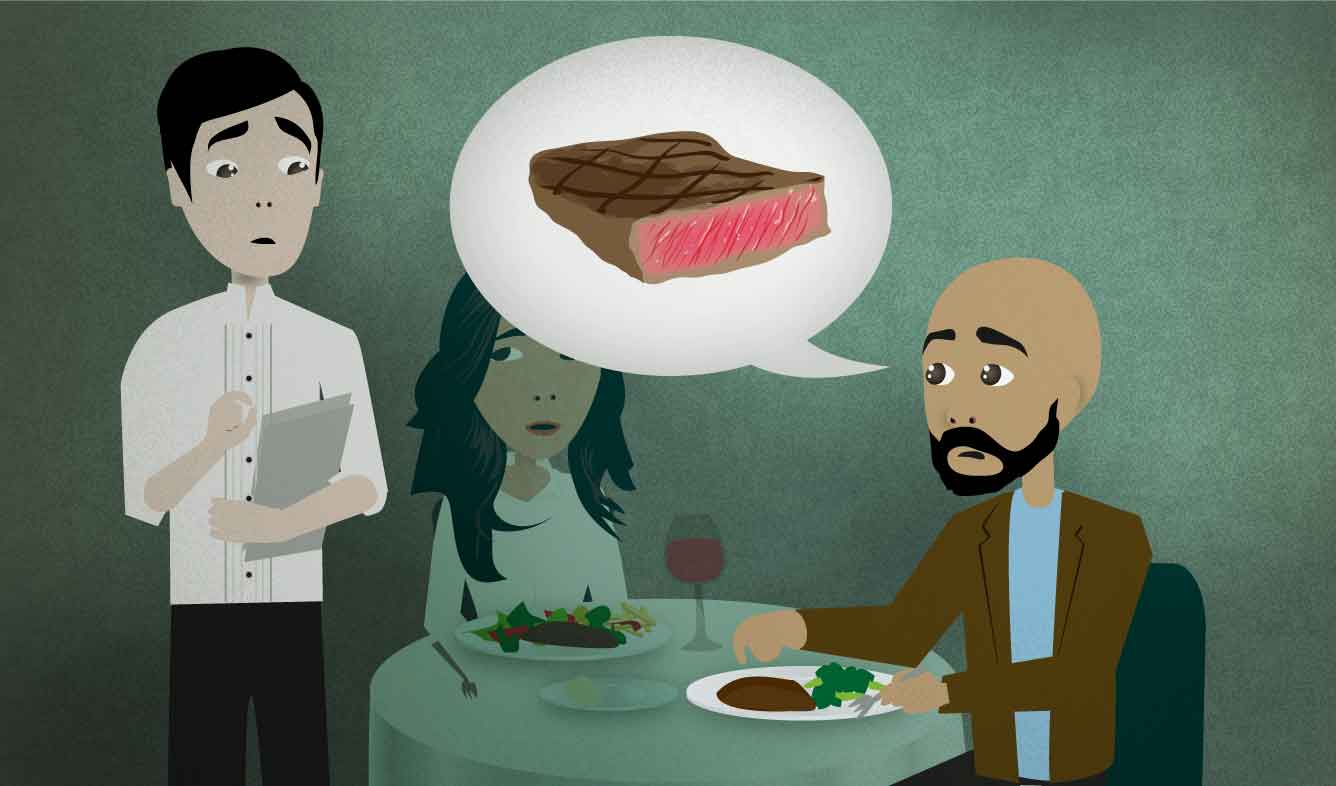“I hate to cause trouble, but I ordered this medium-rare.”
You ordered a steak at a restaurant and asked for it to be cooked medium-rare. When your dinner comes, the steak is over-cooked. You say this to the waiter about the mistake.
I hate to cause trouble, but I ordered this medium-rare.
Want Video and Sound? Follow us on YouTube

I hate to (do something), but...
When people have to tell someone something negative, they often start with "I hate to ___, but..." For example:
I hate to have to tell you this, but your job has been eliminated.
I really hate to ask, but is there any way I could stay with you for a couple of weeks, until I find my own place?
When you start the conversation in this way, it sounds like you don't want to say these things, but you are doing it because you have to.
cause trouble
To "cause trouble" is to do something that makes problems for other people.
"Trouble" can include things like arguments and disagreements. But people also say that you're "causing trouble" if you make requests or suggestions that cause people to have to work a lot harder. For example, if there's someone at work who points out extra work that needs to be done, you can ask a coworker:
Why is he always causing trouble?
"Cause trouble" is used in some set phrases like "I hate to...". Another phrase that you can use with "cause trouble" is "I didn't mean to...":
I didn't mean to cause any trouble.
You use this when you did something that made problems for people, but you don't want people to think you did it on purpose.
a medium-rare (piece of meat)
When a piece of meat is cooked "medium-rare", it is cooked until the center is warm but still red.
Other ways to cook meat include:
- rare (cold and red in the center)
- medium (still a little pink in the center but firm)
- well-done (gray in the center and firm)
